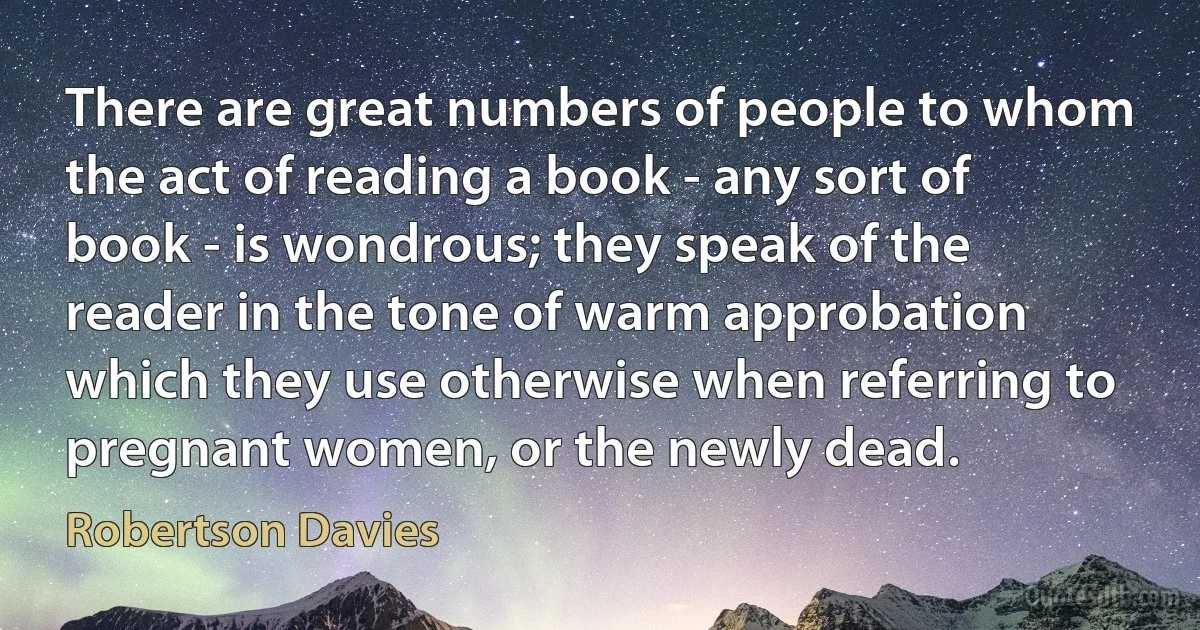Tone Quotes - page 10
Omnisexuality is the term that I use in Hysteria. There seems to be a strain of pure sexuality that can embody itself in any possible way, female, male, something else. This is the first time I've ever articulated this, but I think I'm most interested in that essence of sexuality that seems to be able to take many forms but has still a specific feel and tone to it that we all recognize. You can't really define it as male or female. I'm very fascinated with the way in which maleness and femaleness is specifically physical. but not necessarily purely sexual. There is a difference amongst all those things. This takes you right back to the mind/body schism that I go crazy with all the time.

David Cronenberg
.. I am always between two currents of thought, first the material difficulties, turning round and round to make a living; and second, study of color. I am always in hope of making a discovery there, to express the love of two lovers by a marriage of two complementary colors, their mingling and their opposition, the mysterious vibrations of kindred tones. To express the thought of a brow by the radiance of a light tone against a sombre background. To express hope by some star, the eagerness of a soul by a sunset radiance. Certainly there is nothing in that of stereoscopic realism, but is it not some thing that actually exists?

Vincent van Gogh
And it's certain that unexpected new ideas are beginning to emerge. That paintings are once again beginning to be painted in very different tone from a few years ago.
The last thing I made is a rather large study of an avenue of poplars with the yellow autumn leaves, where the sun makes glittering patches here and there on the fallen leaves on the ground, which are interspersed with the long shadows cast by the trunks. At the end of the road a peasant cottage, and the blue sky above it between the autumn leaves.
I think that in a year's time - having spent that year once again painting a great deal and constantly - I'll change my manner of painting and my colour a great deal, and that I'm likely to become slightly more sombre rather than lighter.

Vincent van Gogh
The chief aim of color should be to serve expression as well as possible. I put down my colors without a preconceived plan. If at the first step and perhaps without my being conscious of it one tone has particularly pleased me, more often then not when the picture is finished, I will notice that I have respected this tone while I have progressively altered and transformed the others. I discover the quality of colors in a purely instinctive way.

Henri Matisse
Any text in spoken English is organized into what may be called 'information units'. (...) this is not determined (...) by constituent structure. Rather could it be said that the distribution of information specifies a distinct structure on a different plan. (...) Information structure is realized phonologically by 'tonality', the distribution of the text into tone groups.

Michael Halliday
The danger that hung over Moscow in the winter of 1941 struck [Hitler] as similar to his present predicament. In a brief access of confidence, he might remark with a jesting tone of voice that it would be best, after victory over Russia, to entrust the administration of the country to Stalin, under German hegemony, of course, since he was the best imaginable man to handle the Russians. In general he regarded Stalin as a kind of colleague. When Stalin's son was taken prisoner it was out of this respect, perhaps, that Hitler ordered him to be given especially good treatment.

Albert Speer
Treatises may be didactic in tone, but essentially they lack the conclusiveness of an instruction which could be asserted, like doctrine, by virtue of its own authority. ... Tirelessly the process of thinking makes new beginnings, returning in a roundabout way to its original object. This continual pausing for breath is the mode most proper to the process of contemplation. For by pursuing different levels of meaning in its examination of one single object it receives both the incentive to begin again and the justification for its irregular rhythm.

Walter Benjamin
We do not mechanically connect the sensation of white with the idea of light, any more than we connect the sensation of black with the idea of darkness. We admit that a black jewel, even if of a dead black, may be more luminous than the white or pink satin of its case. Loving light, we refuse to measure it, and we avoid the geometrical ideas of the focus and the ray, which imply the repetition-contrary to the principle of variety which guides us-of bright planes and sombre intervals in a given direction. Loving colour, we refuse to limit it, and subdued or dazzling, fresh or muddy, we accept all the possibilities contained between the two extreme points of the spectrum, between the cold and the warm tone.

Albert Gleizes
Attack of the Clones displays some similarities to The Empire Strikes Back, but, overall, it is not as effective a piece of cinema (although the 2002 era special effects make it far more pleasing to the eye). Both films contain romantic subplots and are darker in tone than their predecessors. Both develop a number of unresolved plot elements. And both end on a note that incorporates hope with ambiguity. There is, however, one major difference. The Empire Strikes Back includes a shocking revelation. Nothing of that sort is present in Attack of the Clones. In terms of its plotting, this film is relatively straightforward. There's nothing wrong with that - in fact, it works. In a time when, more often than not, sequels disappoint, it's refreshing to uncover something this high-profile that fulfills the promise of its name and adds another title to a storied legacy.

James Berardinelli
Today, Psycho still holds up extraordinarily well (another reason why a remake seems pointless). With the exception of Halloween, no latter-day horror/thriller has been capable of generating as many goosebumps. The black-and-white photography is perfect for the film's tone and mood - the starkness of color would have blurred the nightmarish quality. The painstaking care with which [director Alfred] Hitchcock composed every scene is evident in the quality of the final product.

James Berardinelli
If you want him defined, here he is: a prime, well-fed beast such as takes medals at the cattle shows, and nothing more,” he said, with a tone of vexation that interested her.
"No; how so?” she replied. "He's seen a great deal, anyway; he's cultured?”
"It's an utterly different culture-their culture. He's cultivated, one sees, simply to be able to despise culture, as they despise everything but animal pleasures.

Leo Tolstoy
Now, that brings me to the Liberal Party. I gather that during the last few days there have been some ill-natured jokes about their new symbol, a bird of some kind, adopted by the Liberal Democrats at Blackpool. Politics is a serious business, and one should not lower the tone unduly. So I will say only this of the Liberal Democrat symbol and of the party it symbolises. This is an ex-parrot. It is not merely stunned. It has ceased to be, expired and gone to meet its maker. It is a parrot no more. It has rung down the curtain and joined the choir invisible. This is a late parrot. And now for something completely different.

Margaret Thatcher
When we are told, in the same tone, that these people will be rewarded in "heaven” for their distress, and that "heaven” is the exact reverse of the earthly order ("the first shall be last”), we distinctly feel how the ressentiment-laden man transfers to God the vengeance he himself cannot wreak on the great. In this way, he can satisfy his revenge at least in imagination, with the aid of an other-worldly mechanism of rewards and punishments.

Max Scheler
The character, or tone, of a society depends on what the society regards as the most respectable or most worthy of admiration. But by regarding certain habits or attitudes as most respectable, a society admits the superiority, the superior dignity, of those human beings who most perfectly embody the habits or attitudes in question. That is to say, every society regards a specific human type (or a specific mixture of human types) as authoritative. When the authoritative type is the common man, everything has to justify itself before the tribunal of the common man; everything which cannot be justified before that tribunal becomes, at best, merely tolerated, if not despised or suspect. And even those who do not recognize that tribunal are, willy-nilly, molded by its verdicts.

Leo Strauss



